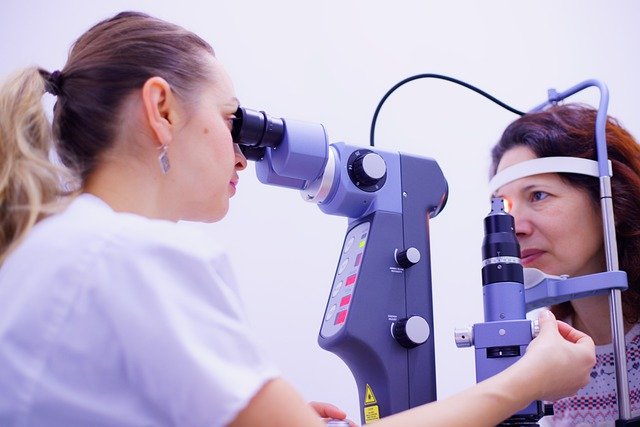Drugs/Therapy
How Eye Exams Can Help Monitor Parkinson’s Progression

(Photo : 5 Things to Know About Eye Surgery Medical Malpractice)
The progression of Parkinson's disease, a neurodegenerative disorder predicted to affect 1 million Americans, may be monitored using routine eye exams, according to a new study.
In an effort to find ways to help the medical community better monitor Parkinson's disease, researchers looked at the eye's role in the progression of the brain condition.
According to lead researcher Dr. Ane Murueta-Goyena, they wanted to check "whether the visual system can enable this deterioration to be predicted, in other words, what future the patient can expect within a few years."
To do this, Murueta-Goyena, a researcher in the UPV/EHU's Department of Neurosciences, in collaboration with Biobizkaia research staff, looked at retina thickness as a possible indicator of Parkinson's progression. They reported their findings in a study published in the journal Parkinson's Disease.
The retina, or the membrane at the back of the eyeball, has several layers that are connected to the nervous system. For the study, the researchers measured the thickness of the innermost layer of the retina using optical coherence tomography, which is routinely used in eye exams.
Changes in the innermost layer in people with and without Parkinson's disease were observed between 2015 and 2021. The collected data was then compared, with the results suggesting that those with Parkinson's had noticeably thinner inner layers of the retina.
"During the initial phases of the disease, it's in the retina where the greatest neurodegeneration is detected, and, from a given moment onwards, when the layer is already very thin, a kind of stabilizing of the neurodegeneration process takes place," the researchers noted in their published study.
Further explaining what they found, Murueta-Goyena said that the thickness of this retinal layer may give clues on the severity of the brain disorder.
"Retinal thinning and cognitive impairment do not occur simultaneously. The initial changes in the retina are more evident and then, over the years, patients are observed to worsen clinically in both cognitive and motor terms," Murueta-Goya said, per Neuroscience News.
"In other words, the slower retinal layer thickness loss is associated with faster cognitive decline; this slowness is linked to greater severity of the disease."
Overall, the team said that eye exams can serve as a "non-invasive" tool to monitor the progression of Parkinson's disease. However, they also acknowledged the need to improve the resolution of the technology used in the exams to better track the neurodegeneration taking place in Parkinson's patients.









Join the Conversation